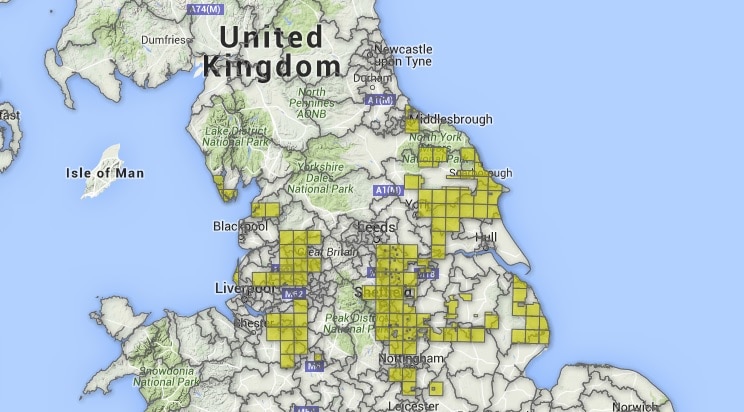An independent fracking journalist was refused entry to an onshore oil and gas summit focused on planning and the environment held in Manchester this week.
Ruth Hayhurst, a journalist for Drill or Drop was twice denied a press pass by organisers Open Forum Events on the grounds there were none, “though they held out the prospect of a standby press pass (whatever that is)” she wrote.
The 6 July summit, sponsored by industry trade body UKOOG, included attendees such as Centrica executives, academics, the Environment Agency, and a local council planning manager.
Discussion focused on the ‘shale gas revolution’, environmental regulations, and how to speed up the planning process.
It comes amidst ongoing public concern around controversial fracking planning applications and the impact of fracking on the environment.
Just this week campaigners mounted a legal challenge on climate grounds against the planning approval for shale gas exploration in North Yorkshire. Meanwhile, the decision on whether to allow fracking in Lancashire is still pending.
The lack of transparency surrounding the event therefore raises concerns given its timely nature and list of speakers – it is not clear whether the event allowed any press to attend.
Press Pass Denied
Speaking to Open Forum Events on the phone, the company confirmed that there were a couple of press passes released, and “we’re going to be chasing those up in the next couple of days”.
However, an event organiser then later stated by email that “there were no journalists there yesterday, apart from one who turned up after asking prior if we had any press passes but was told repeatedly that we had none available.”
Hayhurst decided to make the 526 mile round trip to Manchester in a last effort to gain a media pass but was once again denied entry by Open Forum Events staff. According to Hayhurst, the organisers had confirmed to her that other journalists were in attendance, and that there were free chairs in the room, but she wouldn’t be allowed in as registration had ended.
This isn’t the first fracking event to deny a press pass to Hayhurst, who sometimes writes critically about the industry – the annual Shale Gas Summit has also repeatedly refused to her entry.
Fracking’s Climate Impacts
Inside the conference, executives from shale gas firm Centrica, Lincolnshire County Council planning manager Neil McBride, and Ken Cronin, chief executive of UKOOG, networked with academics from the University of Glasgow and Durham University along with members of the Environment Agency and the Health and Safety Executive.
Other panel discussions included how to effectively engage and persuade local communities and councils, and about how fracking is vital for energy security.
Interesante debate planif. y m.ambiente sobre el desarrollo shale gas en UK. En Summit de petroleo y gas #OFEO&G pic.twitter.com/1QOzzL8YOx
— Carlos Gaete M. (@CarlosGaeteM) July 6, 2016
Speaking on the final panel of the day, however, Kevin Anderson, Deputy Director of the Tyndall Centre for Climate Change Research, reminded those there that shale gas is not compatible with the UK’s carbon budget nor the aim to limit warming to 2C.
Speaking to DeSmog UK he expressed surprise at the broadness of support for his argument.
The conference came just one day ahead of the much-anticipated release of the Committee on Climate Change’s report into the climate change impacts of shale gas.
The report, released yesterday, concluded that only a tightly regulated shale industry should be allowed to go ahead, but warned that without stricter regulations fracking is incompatible with the UK’s climate targets.
Outside the conference building a group of some 50 protesters formed a red line to illustrate that fracking is not compatible with tackling climate change.
Photo: Friends of the Earth fracking licence map
Subscribe to our newsletter
Stay up to date with DeSmog news and alerts







